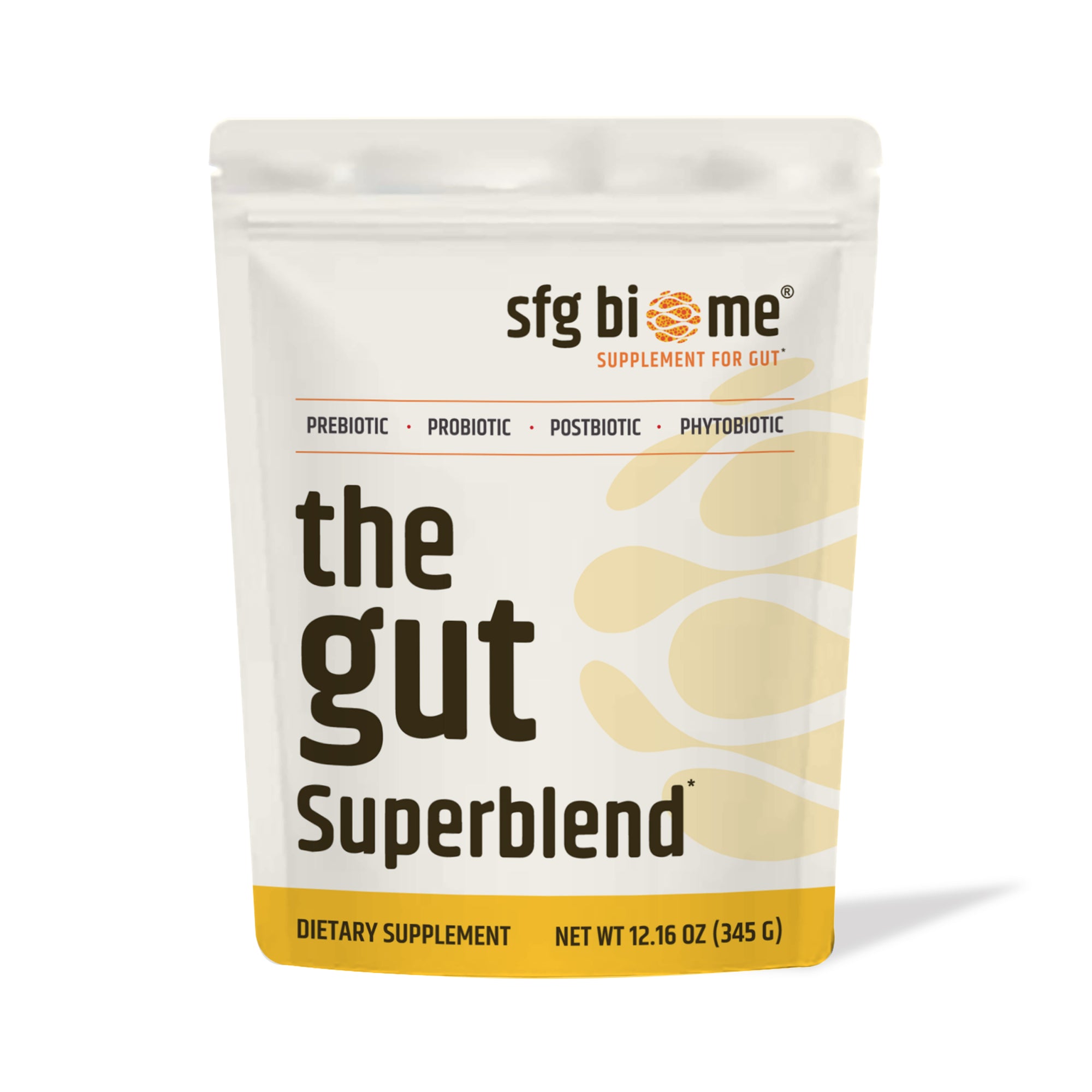The Gut–Brain Connection: Your Body’s Communication Highway

Your gut isn’t just a food processor—it’s a communication hub. Scientists call it the gut–brain axis, a network that links your digestive system and your brain.
When stress strikes, your body releases hormones like cortisol and adrenaline. These chemicals don’t just make your heart race or your palms sweat—they also affect the gut. Stress can alter how your digestive system moves, the balance of your gut bacteria (microbiome), and even the lining of your intestines.
In simple terms: a stressed brain can lead to a stressed gut. That’s why many people notice digestive symptoms when life feels overwhelming.
How Stress Shows Up in Your Gut
Stress can influence digestion in multiple ways:
- • Changes in Digestion
Cortisol can slow down or speed up digestion. Some people experience constipation, while others notice diarrhoea or increased bloating. - • Shifts in Gut Microbiome
Stress disrupts the balance of beneficial gut bacteria. This imbalance, called dysbiosis, can affect nutrient absorption, immunity, and even mood. - • Increased Sensitivity
When stressed, the gut can become more reactive to normal digestive processes. That means foods that were once fine might suddenly cause bloating, cramps, or gas.
Everyday Stressors That Affect Your Gut
Stress doesn’t only come from major life events—it often sneaks in through daily routines:
- • Busy workdays or tight deadlines
- • Poor sleep or inconsistent sleep patterns
- • Emotional strain, anxiety, or worry
- • Environmental stress
How to Support Your Gut When Stress Hits

The good news is that there are several ways to nurture your digestive system—even when stress is unavoidable. Here’s how:
- • Prioritize Gut-Friendly Foods
Fiber-rich foods, fermented foods like yogurt, kefir, sauerkraut, and prebiotic-rich vegetables help feed beneficial gut bacteria. A happy microbiome supports better digestion and can even help the gut recover from stress-induced imbalances. - • Stay Hydrated
Water helps digestion run smoothly and assists in nutrient absorption, which your body needs even more during stressful periods. - • Practice Stress-Reduction Techniques
Mindfulness, meditation, deep breathing, yoga, or even a short walk can calm the nervous system and reduce the impact of stress hormones on your gut. - • Maintain a Sleep Routine
Poor sleep can amplify stress and worsen gut imbalances. Prioritizing regular, restorative sleep supports both the brain and digestive health. - • Consider Supplements Thoughtfully
Probiotics or prebiotics help maintain gut balance when stress is high. These supplements can support beneficial bacteria, but they are most effective as part of a broader healthy lifestyle. Always check with a healthcare provider before starting any new supplement.
Why Understanding This Connection Matters

Recognizing that stress can drive gut problems shifts the focus from just treating symptoms to addressing root causes. Instead of constantly changing diets or avoiding certain foods, managing stress help restore gut balance, improve digestion, and even enhance your overall quality of life.
By learning to respond to stress and supporting your gut through diet, lifestyle, and targeted supplementation, you empower yourself to take control of your digestive wellness.

Final Thoughts
Your gut and your brain are in constant conversation, and stress is a key factor that can disrupt that dialogue. While it’s impossible to eliminate stress entirely, understanding its impact gives you tools to protect your digestion. From mindful habits to gut-supporting foods and supplements, small changes can have a big impact on your digestive comfort and overall health.
Remember: your gut problems might not just be about what you eat—they could also be a reflection of how you live and feel. Supporting your gut through balanced nutrition, stress management, and thoughtful supplementation is one of the smartest ways to reclaim digestive wellness.
FAQs
1. Can stress really cause digestive problems?
Yes. Chronic stress affects gut motility, microbiome balance, and intestinal health, often leading to bloating, cramping, or irregular bowel movements.
2. What foods support the gut during stressful times?
Fiber-rich vegetables, fruits, fermented foods, and prebiotic foods help feed beneficial bacteria and support gut balance.
3. Do probiotics help with stress-related gut issues?
Probiotics can support a healthy microbiome, which help the gut cope with stress. Results vary, and they work best alongside healthy lifestyle habits.




